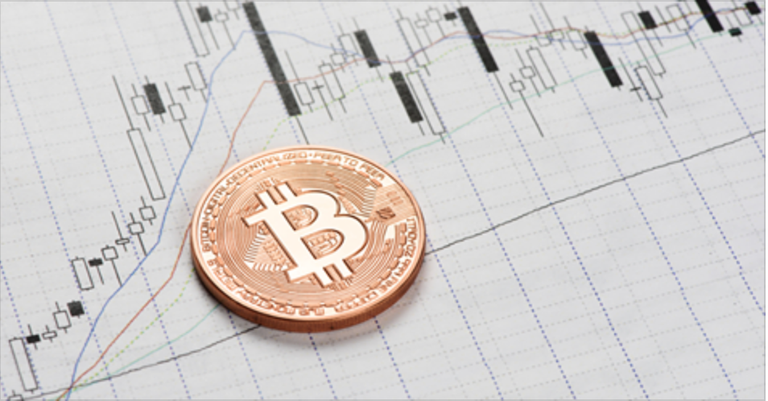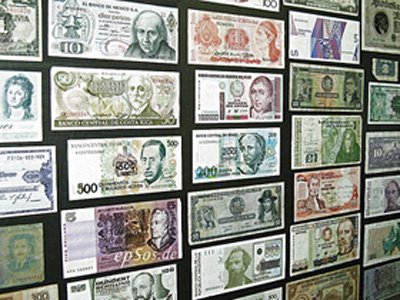
Along with all the wondrous changes that Bitcoin and the cryptocurrency revolution have brought, it is also quite refreshing that people are now starting to learn and think about what money really means. Most of the crypto-deniers twaddle on about how Bitcoin has no tangible value. This is a pathetically empty argument, and I'll tell you why.
All human civilizations have transitioned from a barter economy to a money-based economy because it is simply not possible to accommodate the needs of exchange without a medium that does not depend upon the “coincidence of need”. No doubt, far before biblical times, gold and silver were money.
For now, let's just call gold (yes, and silver too) the first money of human civilization. Its tangible value is primarily in jewelry and kitchen utensils. Until the 20th century, there was really no other uses for it. Yet human beings desired it more than anything else.
Gold's true value is because it worked better as a money than anything else. Let's pass on the talk of seashells, shall we?
Which brings us to the subject of value, the concept that has puzzled economists for hundreds of years. It was only until the late 1800’s that Joseph Menger, amongst others, formally stated the subjective theory of value. That is, something's value is what we think it is. Every single one of us differently, based on no more than how we feel about it. That subjective value also can change over time, and at the same time between different people, depending on the situation.
The outdated classical idea was that value is objective and unchangeable. The negative proof is way too easy. The difference in most people's value of a finger-painting versus the Mona Lisa, is far different from the cost of paint and canvas or the amount of time that either artist spent in painting it.
The marginal part of the subjective theory has to do with much of something you have. The value a thirsty person places on one gallon of water in the desert is far greater than he would in your kitchen. Yet the paintings and the water do not change. Only our marginal, subjective value of them.
We value money based upon how well it functions as a medium of exchange. It just has to be something that everyone values for whatever reason. Gold has always had that characteristic. This truth is clearly demonstrable by walking any shop in any city or village anywhere on the planet.
Here's what a money has to have:
Durability: whatever it is cannot fade away, like tobacco (which was used for for a bit).
Portability: we have to be able to carry it around with us in our pockets, purses, sacks, or on the back of wagons or in ships.
Divisibility: there is a wide range of prices of things that people want to buy, anywhere from a piece of candy to a private island. Money has to come in different sizes.
Scarcity: money can’t just be found laying around willy-nilly. The very definition of special. Gold and silver were recognized for their scarcity and difficulty to extract.
(What isn’t scarce: Paper. Fiat currency in paper certificates, are always subject to government corruption via counterfeiting or debasement. Or anyone with a printing press. Trusting governments just to make coins, as seen in the Roman Empire, is also subject to lots of risk.)

In the 21st century, we recognize there are more important properties of money that we would like to have. Just like gold, we want money to have an unchangeable (“immutable”) characteristic that when a transaction is made, that transaction is done, like when I trade a piece of gold with you. This is what the blockchain gives us. The other factor is privacy. When I hand you a dollar bill, as worthless as that is, that is between us. Portability today takes on a whole new meaning. We have a world economy of people trading products, services, and information daily. The ability to transact not in months, weeks or days, but in minutes and seconds is a greatly enlarged requirement.
So why is Bitcoin so valuable? Because it checks off all these ancient and modern requirements better than anything else that ever been thought of, since gold. We are actually creating the first new money in millennia. (So give it some time, will ya?)
People will jettison their bad money, the government paper fiat currencies, for better money. Yes, we still have gold and silver, but the new money does more, and matches more of what we want. It cannot be counterfeited. It can rapidly be exchanged worldwide. It maintains privacy from those who would steal it. It is scarce because it depends on pure unbreakable mathematics. Any competing crypto will have to clearly state its scarcity (how it is mined) in real terms. For Bitcoin, that is a fixed number. Very scarce.
What about Ether or EOS? Even more great characteristics, yet not even close to being understood. So we shall see. Let the best ones win.
There are lots of subjective reasons to value Bitcoin more than what we have now, even if it is hard for people to explain and understand.